Recent Articles
Archive of Issues
Aim and Scope
Editorial Board
Open Access
Indexing
Why publish with us
Contact Us
Instructions to Authors (PDF)
Manuscript Types
Manuscript Formatting
How to submit
Special publications & Reprints
Preprints
Authorship & COI
Principles of Transparency Checklist
Publication Ethics and Publication Malpractice Statement
Crossmark
Data Policies
Supporting Diversity
Principles of Transparency Checklist
Peer review process
Peer review is double blind within our journal. Every original article is peer reviewed by a minimum of two external experts and one member of the editorial board. In all cases the manuscript is also reviewed by at least one Editor Board member. Letters to the Editor and Editorials are peer reviewed internally. All journal content is clearly marked as whether peer reviewed or not (internally vs. externally peer reviewed). All articles have a specific provenance and peer review tab (commissioned vs. non commissioned).
Authors may suggest external reviewers that are qualified to peer review the manuscript, provided that they have not collaborated closely in the near past and that they are not from the same institution. Authors may also note peer reviewers who they would not prefer to review this paper. While the authors suggestions are taken into account, the Editorial Office reserves the right to handle double blind peer review at its discretion. Any manuscripts received for review will be treated as confidential documents.
External peer reviewers are requested to report on the ethical aspects of the manuscript they are allocated to review and are requested to report also on the novelty, the impact, the statistical analysis, references and potential conflicts of interest. A specific peer review form is provided with closed and open based questions so as to rate the manuscript and provide comments.
Governing Body
Our journal has an editorial board whose members are recognized leading experts in the area of public health at a regional and international level. The full names and affiliations of the journal's editors are provided at the Editorial Board page. The editorial board is the final governing body of the journal.
Editorial team/contact information
We provide the full names and affiliations of the journal's editors as well as full address and contact information for the editorial office and the publisher.
Author fees
From September 2023 onwards an Article Processing Charge is being levied for all articles published in the journal, with the exception of those submitted from LIC. Detailed information on the amount of the APC can be found at the Instructions to Authors - How to submit page.
In addition, if a commercial license is applied (CC BY 4.0 or CC BY-ND 4.0), then a commercial license charge of 1000 E (plus VAT where applicable) is levied.
Copyright
Copyright is clearly described on the journal's website, and licensing terms are indicated on all published PDFs.
Authors submitting their work to Population Medicine retain the copyright of their work without restrictions.
The default license for articles published in Population Medicine is the Creative Commons Attribution-NonCommercial 4.0 International License (CC BY-NC 4.0).
Authors who wish to publish their work under a commercial license are also able to choose between the Creative Commons Attribution 4.0 International license (CC BY 4.0) or the Creative Commons Attribution-NoDerivatives 4.0 International License (CC BY-ND 4.0).
Each article abstract and summary, as available on the website, has a dedicated “license” tab with a direct link to the licensing requirements of that article.
Process for identification of and dealing with allegations of research misconduct
Both the publishers and the Editors of the journal take affirmative action to identify and prevent the publication of papers where research misconduct has occurred, including plagiarism, citation manipulation, and data falsification/fabrication, among others. All authors are requested to complete and upload ICMJE conflict of interest forms. All manuscripts undergo ithenticate plagiarism detection after each round of peer review. In the event that the journal's publisher or editors are made aware of any allegation of research misconduct relating to a published article in their journal - COPE's guidelines will be followed when dealing with allegations.
Ownership and management
The journal is operated and managed by the publisher. All content is published under Creative Commons licenses, which means that authors retain ownership of the content of their manuscript.
Web site
Our journal's web site has been developed with care so as to ensure high ethical and professional standards. Constant updating is performed to enhance website utility, ease navigation and maintain the information available as the most recent.
The Name of journal
The journal name, Population Medicine, is unique and can not be confused with any of the other journals in the field.
Conflicts of interest
We have clear policies on handling potential conflicts of interest of editors, authors, and reviewers - all are requested to either complete ICMJE forms or declare no conflict of interest. Authorship & COI tab provides further information.
Access
Population Medicine is freely available to readers with no subscription or pay per view fees. The number of direct downloads and views for each article are noted next to the article's abstract.
Revenue sources
Population Medicine was supported through the application of Article Processing Charges, Commercial License charges, paper reprints and e-reprints. From 2019-2023, there were no Article Processing Charges or any related subscriptions or costs. Currently, revenue is obtained through the application of Article Processing Charges, paper reprints and e-reprints.
Manuscripts submitted after September 2023 have an Article Processing Charge, once accepted. APCs are levied to cover the cost of providing our quality publishing services. At the time of submission, for complete transparency regarding APCs, authors are mandated to accept the clearly written APCs or state that they have a waiver. Upon acceptance, a pro forma invoice is created, and upon publication, a final invoice is issued. APCs are payable within 30 days of the invoice date. From September 2023, articles that are accepted for publication carry an APC unless one of the below criteria apply:
The development of the journal was partially funded through the Smart Specialization Strategy of Crete (S3), an innovation policy concept to support regional prioritization in innovative sectors, fields or technologies. The European Commission introduced the S3 concept in the EU Cohesion Policy 2014-2020 as an ‘ex-ante conditionality’ for European regions to obtain funding for research and innovation from the European Regional Development Fund.
Advertising
Our journal does not accept advertisements.
Publishing schedule
The publishing schedule for our journal is continuous, however, articles are grouped into monthly issues.
Archiving
To ensure digital preservation for the future, our electronic publications archive in partnership with Portico. Portico is a third-party preservation service supported by both libraries and publishers to ensure that scholarly content published in electronic form will remain accessible for the long term.
Direct marketing
We do not engage in mass email solicitation of articles and will never mass email potential authors to attract submissions. We believe that this "spamming" practice is unethical and unprofessional. Specific leaders in the field may be contacted on a case-by-case individual basis for commissioned articles or editorials, however, this will be clearly stated in both the pdf and the HTML format of the final manuscript (if accepted). Mass emailing will never take place. To us, the best promotion of a journal is through the maintenance of high standards, quality manuscripts and vigorous double-blind peer review.
Repository policy
The journal's open access policy is registered under Sherpa Romeo, an online resource that aggregates and presents publisher and journal open access policies from around the world.
Peer review is double blind within our journal. Every original article is peer reviewed by a minimum of two external experts and one member of the editorial board. In all cases the manuscript is also reviewed by at least one Editor Board member. Letters to the Editor and Editorials are peer reviewed internally. All journal content is clearly marked as whether peer reviewed or not (internally vs. externally peer reviewed). All articles have a specific provenance and peer review tab (commissioned vs. non commissioned).
Authors may suggest external reviewers that are qualified to peer review the manuscript, provided that they have not collaborated closely in the near past and that they are not from the same institution. Authors may also note peer reviewers who they would not prefer to review this paper. While the authors suggestions are taken into account, the Editorial Office reserves the right to handle double blind peer review at its discretion. Any manuscripts received for review will be treated as confidential documents.
External peer reviewers are requested to report on the ethical aspects of the manuscript they are allocated to review and are requested to report also on the novelty, the impact, the statistical analysis, references and potential conflicts of interest. A specific peer review form is provided with closed and open based questions so as to rate the manuscript and provide comments.
Governing Body
Our journal has an editorial board whose members are recognized leading experts in the area of public health at a regional and international level. The full names and affiliations of the journal's editors are provided at the Editorial Board page. The editorial board is the final governing body of the journal.
Editorial team/contact information
We provide the full names and affiliations of the journal's editors as well as full address and contact information for the editorial office and the publisher.
Author fees
From September 2023 onwards an Article Processing Charge is being levied for all articles published in the journal, with the exception of those submitted from LIC. Detailed information on the amount of the APC can be found at the Instructions to Authors - How to submit page.
In addition, if a commercial license is applied (CC BY 4.0 or CC BY-ND 4.0), then a commercial license charge of 1000 E (plus VAT where applicable) is levied.
Copyright
Copyright is clearly described on the journal's website, and licensing terms are indicated on all published PDFs.
Authors submitting their work to Population Medicine retain the copyright of their work without restrictions.
The default license for articles published in Population Medicine is the Creative Commons Attribution-NonCommercial 4.0 International License (CC BY-NC 4.0).
Authors who wish to publish their work under a commercial license are also able to choose between the Creative Commons Attribution 4.0 International license (CC BY 4.0) or the Creative Commons Attribution-NoDerivatives 4.0 International License (CC BY-ND 4.0).
Each article abstract and summary, as available on the website, has a dedicated “license” tab with a direct link to the licensing requirements of that article.
Process for identification of and dealing with allegations of research misconduct
Both the publishers and the Editors of the journal take affirmative action to identify and prevent the publication of papers where research misconduct has occurred, including plagiarism, citation manipulation, and data falsification/fabrication, among others. All authors are requested to complete and upload ICMJE conflict of interest forms. All manuscripts undergo ithenticate plagiarism detection after each round of peer review. In the event that the journal's publisher or editors are made aware of any allegation of research misconduct relating to a published article in their journal - COPE's guidelines will be followed when dealing with allegations.
Ownership and management
The journal is operated and managed by the publisher. All content is published under Creative Commons licenses, which means that authors retain ownership of the content of their manuscript.
Web site
Our journal's web site has been developed with care so as to ensure high ethical and professional standards. Constant updating is performed to enhance website utility, ease navigation and maintain the information available as the most recent.
The Name of journal
The journal name, Population Medicine, is unique and can not be confused with any of the other journals in the field.
Conflicts of interest
We have clear policies on handling potential conflicts of interest of editors, authors, and reviewers - all are requested to either complete ICMJE forms or declare no conflict of interest. Authorship & COI tab provides further information.
Access
Population Medicine is freely available to readers with no subscription or pay per view fees. The number of direct downloads and views for each article are noted next to the article's abstract.
Revenue sources
Population Medicine was supported through the application of Article Processing Charges, Commercial License charges, paper reprints and e-reprints. From 2019-2023, there were no Article Processing Charges or any related subscriptions or costs. Currently, revenue is obtained through the application of Article Processing Charges, paper reprints and e-reprints.
Manuscripts submitted after September 2023 have an Article Processing Charge, once accepted. APCs are levied to cover the cost of providing our quality publishing services. At the time of submission, for complete transparency regarding APCs, authors are mandated to accept the clearly written APCs or state that they have a waiver. Upon acceptance, a pro forma invoice is created, and upon publication, a final invoice is issued. APCs are payable within 30 days of the invoice date. From September 2023, articles that are accepted for publication carry an APC unless one of the below criteria apply:
- All manuscripts from Low-Income Countries are automatically granted a waiver.
- Manuscripts from Low Middle-Income Countries and from authors of High-Income Countries who are unable to pay the APC, are evaluated on a case by case basis by the Editor-in-Chief and the Publisher.
- Editorials and Letters to the Editor do not have any APCs
The development of the journal was partially funded through the Smart Specialization Strategy of Crete (S3), an innovation policy concept to support regional prioritization in innovative sectors, fields or technologies. The European Commission introduced the S3 concept in the EU Cohesion Policy 2014-2020 as an ‘ex-ante conditionality’ for European regions to obtain funding for research and innovation from the European Regional Development Fund.
Advertising
Our journal does not accept advertisements.
Publishing schedule
The publishing schedule for our journal is continuous, however, articles are grouped into monthly issues.
Archiving
To ensure digital preservation for the future, our electronic publications archive in partnership with Portico. Portico is a third-party preservation service supported by both libraries and publishers to ensure that scholarly content published in electronic form will remain accessible for the long term.
Direct marketing
We do not engage in mass email solicitation of articles and will never mass email potential authors to attract submissions. We believe that this "spamming" practice is unethical and unprofessional. Specific leaders in the field may be contacted on a case-by-case individual basis for commissioned articles or editorials, however, this will be clearly stated in both the pdf and the HTML format of the final manuscript (if accepted). Mass emailing will never take place. To us, the best promotion of a journal is through the maintenance of high standards, quality manuscripts and vigorous double-blind peer review.
Repository policy
The journal's open access policy is registered under Sherpa Romeo, an online resource that aggregates and presents publisher and journal open access policies from around the world.
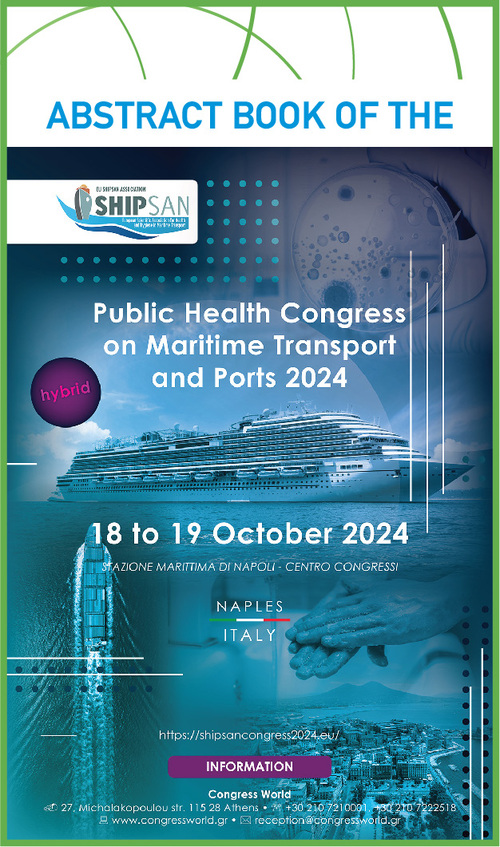
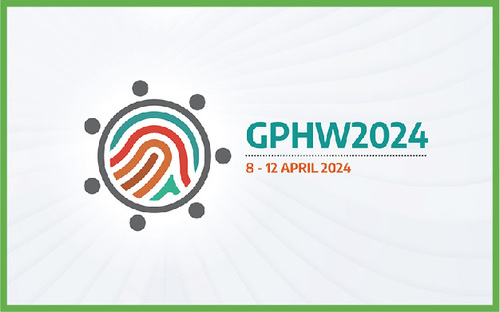


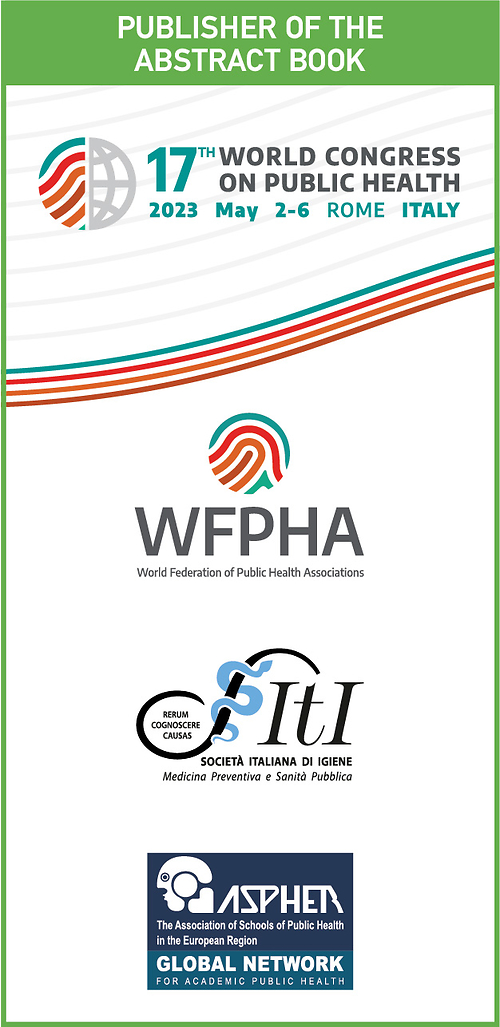
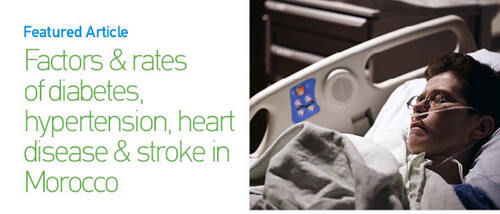

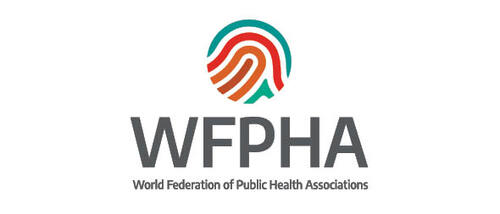
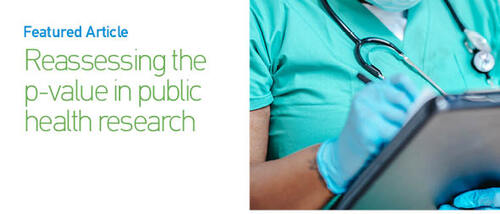
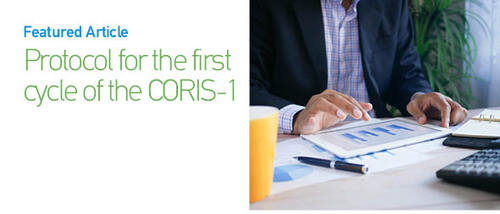
Most read
- Month
- Year
We process personal data collected when visiting the website. The function of obtaining information about users and their behavior is carried out by voluntarily entered information in forms and saving cookies in end devices. Data, including cookies, are used to provide services, improve the user experience and to analyze the traffic in accordance with the Privacy policy. Data are also collected and processed by Google Analytics tool (more).
You can change cookies settings in your browser. Restricted use of cookies in the browser configuration may affect some functionalities of the website.
You can change cookies settings in your browser. Restricted use of cookies in the browser configuration may affect some functionalities of the website.

